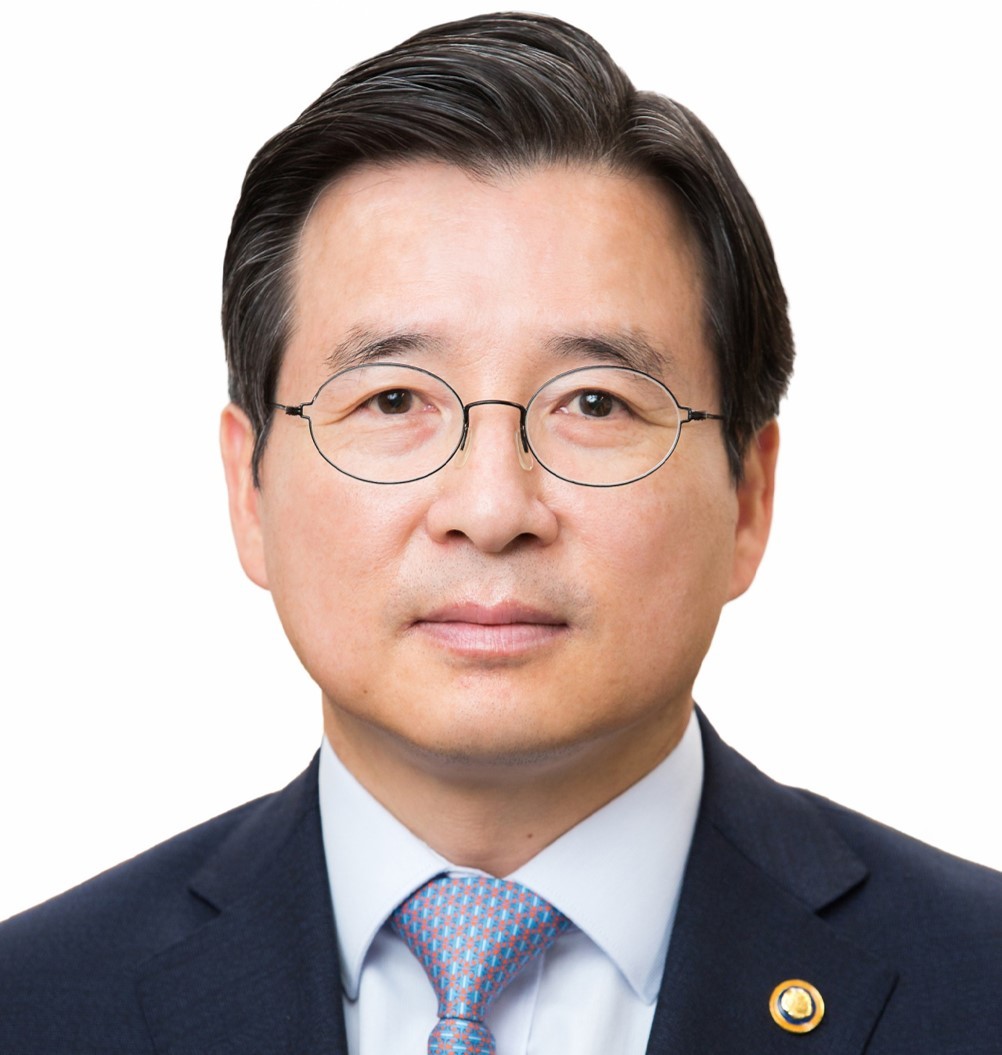
Vice Finance Minister Kim Yong-beom (Ministry of Economy and Finance)
"Where does Korea stand in tackling climate change? Going forward, what path should we take next to ensure sustainable growth while Korea’s growth model has once led to a successful industrialization?"
As I watched the global protest play out on the Global Day of Climate Action on Sept. 25, I found myself ruminating about Korea’s position in the global response to climate change which is so often condensed into the word "Green."
In 2015, governments around the world, in recognition of the grave threats posed by climate change, reached the landmark Paris Agreement, and have since collaborated on more specific climate actions. Alongside discussions on energy and environment, the Group of 20 has also been actively engaged in the development of Green Finance.
Furthermore, efforts are being ramped up at the country and regional level. In 2019, the EU announced the European "Green Deal" policies and the UK launched its Green Finance Strategy. More recently, China pledged to reach carbon neutrality by 2060 at the UN General Assembly, reaffirming its commitment to partake in international discussions on climate change. In the wake of COVID-19, the importance of Green Recovery is being placed front and center as the means to restore the economic fallout around the world.
Korea also recently unveiled grand initiative, the Korean New Deal. It seeks to go beyond "recovery" from the pandemic-induced crisis to transforming the economic fundamentals. And a core pillar of this initiative is the Green New Deal to accelerate the national transition to eco-friendly and low-carbon economy.
The Green New Deal plans to invest a total of 73.4 trillion won ($64 billion), including 42.7 trillion won worth of fiscal investment, by 2025 to build a green economy that is carbon neutral and ensure sustainable growth. The priority areas include green transition of urban, spatial and residential infrastructure, dissemination of low-carbon and off-grid energy, and establishment of an innovative ecosystem for the green industry.
First, the green transition of urban, spatial and residential infrastructure will be strongly pursued. Green remodeling of public facilities and green smart school projects will be proceeded to promote zero-energy buildings. At the same time, the recovery of green ecosystem on our national land, sea, and cities will be restored through green smart cities and urban forests.
Second, the use of low-carbon and off-grid energy will be promoted. The goal is to build a smart grid that enables efficient energy management and establish a basis for dissemination of new renewable energy including wind and solar power and support a fair transition while also supporting the supply of green mobility such as electric and hydrogen cars.
Furthermore, these efforts must be accompanied by an innovative ecosystem for the green industry. The Korean government will identify green sectors that mitigate climate change and environmental risks, and lay the groundwork for innovation in R&D and finance to ensure that the green industry becomes a new growth engine.
Green New Deal is certainly a meaningful start toward the systemic overhaul to transform Korea into a green economy, but there is no question about the long journey ahead. We have been late to get started in the response to climate change. However, thinking back to the industrialization period, I am confident that Korea can leap ahead to lead the global paradigm shift to sustainable growth.
The Korean government has already declared our vision to transform into a net-zero society. Transforming the economic structure is indeed a difficult task, given that Korea is highly dependent on the manufacturing sector characterized by high energy demand. In addition, unlike other advanced countries, Korea has not completed the transition into a service economy, and also faces unfavorable environmental conditions for renewable energy. However, we will strive to overcome these challenges. And as part of such efforts, the Korean government will remain committed to reaching a social consensus on the 2050 Long-Term Low-greenhouse gas Emission Development Strategy (LT-LEDS) in time for submission at the end of this year so as to meet the global expectation of Korea. I believe that these efforts and considerations will surely help the international community find solutions to climate change.
On international cooperation, Korea will take on a more pivotal role by sharing our best practices and experiences with developing countries. Green cooperation framework will be strengthened to reduce the gap between developed and developing countries by utilizing both bilateral channels such as the Economic Development Cooperation Fund (EDCF) and Knowledge Sharing Program (KSP) and multilateral channels including the Green Climate Fund (GCF) and other Multilateral Development Banks (MDBs).
With deep sincerity, I hope that the Green New Deal has made it in time. Our efforts backed by this important initiative will surely be the motivation towards the sustainable growth for our future generations.
Kim Yong-beom is the first vice minister of economy and finance. The views reflected in this article are his own. -- Ed.






